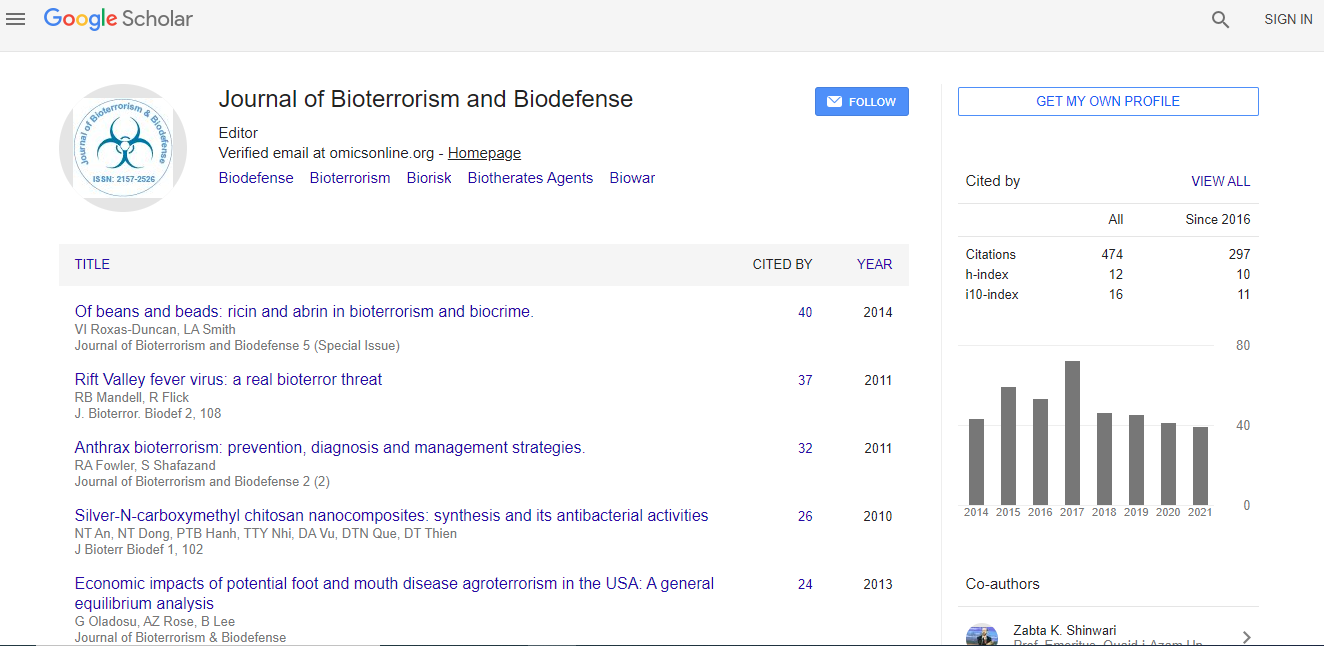Announcement
*Corresponding Author:
Copyright: © 2021 . This is an open-access article distributed under the terms of the Creative Commons Attribution License, which permits unrestricted use, distribution, and reproduction in any medium, provided the original author and source are credited.
Abstract
Nuclear terrorism denotes the detonation of a yield-producing nuclear bomb containing fissile material by terrorists. Some definitions of nuclear terrorism include the sabotage of a nuclear facility and/or the detonation of a radiological device, colloquially termed a dirty bomb but consensus is lacking. In legal terms, nuclear terrorism is an offense committed if a person unlawfully and intentionally “uses in any way radioactive material with the intent to cause death or serious bodily injury; or with the intent to cause substantial damage to property or to the environment. Information security, sometimes shortened to InfoSec, is the practice of defending information from unauthorized access, use, disclosure, disruption, modification, perusal, inspection, recording or destruction. It is a general term that can be used regardless of the form the data may take (e.g. electronic, physical). Sometimes referred to as computer security, Information Technology security is information security applied to technology. It is worthwhile to note that a computer does not necessarily mean a home desktop. A computer is any device with a processor and some memory. Such devices can range from non-networked standalone devices as simple as calculators, to networked mobile computing devices such as smartphones and tablet computers. IT security specialists are almost always found in any major enterprise/establishment due to the nature and value of the data within larger businesses. They are responsible for keeping all of the technology within the company secure from malicious cyber attacks that often attempt to breach into critical private information or gain control of the internal systems

 Spanish
Spanish  Chinese
Chinese  Russian
Russian  German
German  French
French  Japanese
Japanese  Portuguese
Portuguese  Hindi
Hindi 